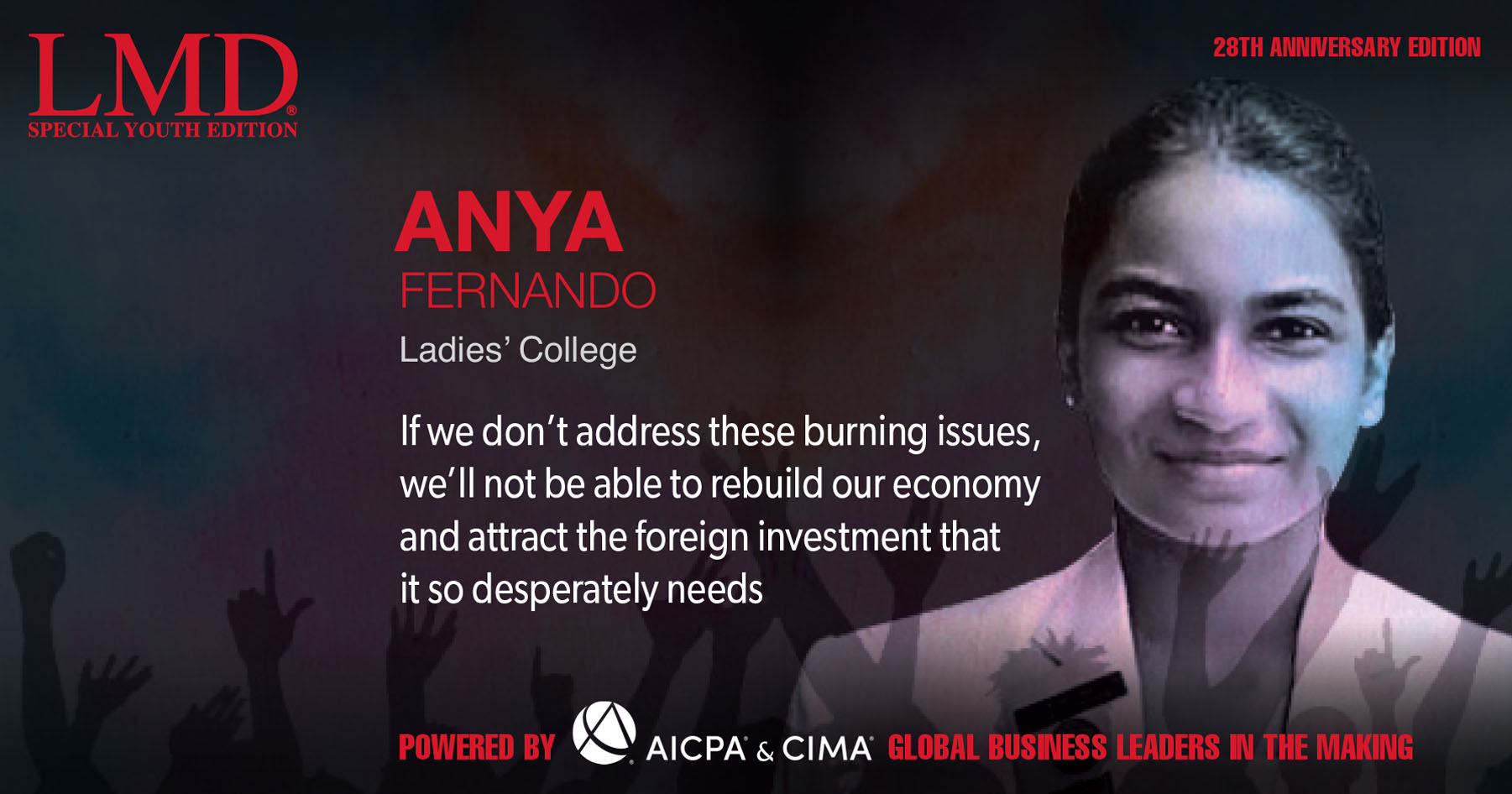Q: In your view, has the aragalaya led to a united Sri Lanka – and if so, is this unity sustainable?
A: Yes, because it has brought together a diverse group of people from different ethnicities, religions, social backgrounds and varying ages in pursuit of a common struggle.
However, I think it is unlikely that this unity will be sustainable in the long term, unless concrete steps are taken to address the fundamental issues that underlie the socioeconomic, racial, religious and other divisions that exist in our country.
Q: As far as our education system goes, what are the pros and cons?
A: Our country has a remarkably high literacy rate so we’re doing some things right. That said, things can be improved.
When looking at the pros, primary, secondary and tertiary education is free; education is compulsory for students up to the age of 16; the literacy rate is high for both males and females; and now there are more opportunities for private education especially at the tertiary level.
As for the negatives, the education system is very rigid and exams are highly competitive; and as a result, many students are forced to seek private tuition, which is very costly. There is also a shortage of trained teachers so the quality of education is a concern. The availability of private education opportunities widens the economic divide between the rich and poor.
Q: Do you see yourself remaining in Sri Lanka – or returning to Sri Lanka – or do you think it’s best to migrate?
A: It’s currently not up for consideration but I will always remember what my school, Ladies’ College, has instilled in me – and I hope to serve my country someday.
Q: Where do you see Sri Lanka in a decade from today?
A: Today, Sri Lanka is facing a grave financial, economic and political crisis, and many of us are feeling discouraged and anxious about what will happen. I am optimistic however, that Sri Lanka’s fortunes can be turned around and that this country will once again be a true ‘Pearl of the Indian Ocean’ in a decade from today.
To achieve this, we must first understand and take measures to address the underlying structural problems that exist in our country. If we don’t address these burning issues, we’ll not be able to rebuild our economy and attract the foreign investment that it so desperately needs.
MESSAGE TO THE YOUTH
We are Sri Lanka’s future so we must participate actively in the social and political fabric of our country.
SRI LANKA: FIVE BURNING ISSUES
Need for political stability
Rebuilding the economy to attract foreign investments
Growing social disparity
Shortage of medicines and equipment
Retention of talent
ROLE MODEL
I find it difficult to name only one because I have great admiration for people who value honesty, integrity and humility, and those who work hard with dedication.
SUMMARY
Sri Lanka is currently facing an unprecedented financial, economic and political crisis. This crisis did not happen overnight. We need to understand and address the structural issues that have led our country to this situation.
While people from all walks of life have laid their ethnic, religious and socioeconomic differences aside to participate in the aragalaya, this unity between the people cannot last unless the underlying issues are addressed.


